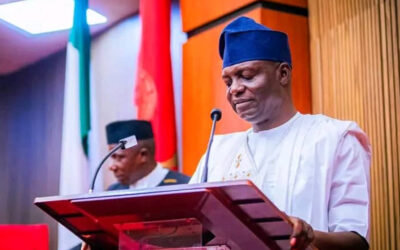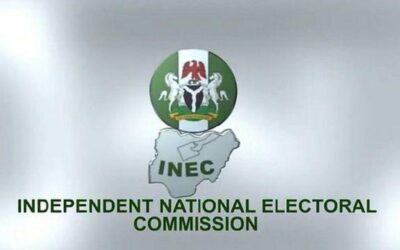Kaduna Labour Crisis: Can State Governments Survive the Burden of Workers’ Wages?
The Nigeria Labour Congress (NLC) on 16 May 2021 plunged Kaduna State into total darkness as workers protest the current hardliner posture of the state government on labour issues.
Schools, banks, and other critical institutions in the state were directed to shut down. Air and rail transport services were also suspended. Over 15 different unions are taking part in this strike action that will cripple virtually all business activities in Kaduna State for an initial five days.
This is following the directive of the Nigeria Labour Congress (NLC) which had on 11 May 2021 asked all government workers in the state to embark on an indefinite strike to compel the government to rescind several anti-labour actions.
Recently, over 6,000 public servants in Kaduna were relieved of their jobs. This is coupled with plans that are underway to place a 25 per cent cut on the monthly salaries of the remaining workers.
Governor Nasir el-Rufai had cited fiscal reasons after public outrage trailed the recent earlier sacking of 4000 workers across the 23 Local Government Areas of Kaduna State. His effort to explain that the money the state had been receiving lately from the Federation account since the middle of 2020, can barely pay salaries and overheads did not impress Labour.
Those observing the economic trend in the country will agree that this challenge is not limited to Kaduna State. Most other sub-nationals in Nigeria are having similar problems, though some are playing the ostrich.
This means it is just a matter of time before arrears of salaries, retrenchment, and other related challenges will drag many other states into the same position as Kaduna.
With the current level of dwindling resources, rising inflation, and low level of Internally Generated Revenue, what can save the states from the challenges of paying workers’ salaries and wages?
There were initial efforts by lawmakers to amend the minimum wage law and remove it from the exclusive list to concurrent list in order to empower states to negotiate with workers and fix an acceptable minimum wage.
This move did not go down well with the organised labour as they felt the issue was a closed one. Labour cited that the National Assembly passed the N30, 000 new National Minimum Wage Act into law on 19 March 2019, and it was transmitted to President Mohammadu Buhari on 2 April 2019.
Buhari had signed this bill effective April 18, 2019, thus repealing the Minimum Wage Act of 2011. The Federal Government started implementing the new wage after negotiating and agreeing on the consequential adjustment with organised labour in October.
However, the implementation of the law by state governments has been envisioned by some of the governors as a herculean task, citing dwindling revenue as an excuse.
Analysts have blamed state governors for always relying on Federal Allocation to finance the needs of the states as opposed to looking within and seeking ways to generate revenue internally, which will only complement the allocation from the Federal Government.
Despite labour’s discomfiture, the House of Representatives decided to throw their hats in the ring as Datti Garba from Kaduna State went ahead to sponsor a bill seeking to amend the 1999 constitution.
The legislation was titled “A Bill for an Act to Alter the Constitution of the Federal Republic of Nigeria, 1999 (as amended) to, Among Others, Transfer the Subject Matter of Minimum Wage Prescription from the Exclusive Legislative List Set Out Under Part I of the Second Schedule to the Concurrent Legislative List Set Out Under Part II of the Second Schedule to the Constitution; and for Related Matters”.
The bill scaled second reading in the House of Representatives amidst opposition. Garba stated that it is part of the devolution of powers that allows states to determine minimum wage based on capacity, instead of the National Minimum wage that most states are not complying with. In his words:
“Every attempt to impose minimum wage has always proven controversial. Labour leaders have been seeing minimum wage as collective bargaining. We all know that states are not equal; some states can pay, while some cannot afford it. Even in some states, local governments, like Surulere local government where the Speaker (Gbajabiamila) is from can pay, but some local governments within the same state cannot.
“In the 1963 Constitution, the minimum wage was in the concurrent legislative list. This decentralisation will allow each state to negotiate with labour unions in their respective states. This proposal is egalitarian as the current approach is arbitrary.”
Datti further argued that the current law on minimum wage has no implementation mechanism as most states are not complying with the legislation.
Supporting the bill, Uzoma Abonta from Abia State said the bill is one of the ‘finest’ legislations in the 9th House, adding that the bill will help in the decentralisation of the federation, and devolve more powers to the states:
“This bill is important. The minimum wage as constituted in the constitution is evil. The rent in Abia is different from Abuja. A collective minimum wage is hazardous.”
Also speaking in support of the bill, Fred Agbedi (PDP Bayelsa), said the bill will allow states” to allocate salaries they can afford, based on resources available to them”.
However, the deputy Speaker of the House, Idris Wase, who is the Chairman of the Committee on Constitution amendment described the bill as “anti-people” and urged his colleagues to reject it.
Wase argued that states are unable to pay wages due to the inability to prioritise and not due to lack of funds. Aminu Sulaiman, while speaking against the bill, said the bill is an incentive to states to undermine the collective bargaining power advantage of the union.
Following the long debate, the “ayes” had the majority votes when the bill was put to a voice vote by the Speaker, Femi Gbajabiamila.
Hundreds of members of the Nigerian Labour Congress (NLC) and the Trade Union Congress (TUC) thereafter filled the streets in Abuja, in protest of the proposed move.
Interestingly, NLC had the backing of the Federal Government. According to the Minister of Labour and Productivity, Dr Chris Ngige, “There are about 187 countries that make up the International Labour Organisation (ILO) and Nigeria is a member. We accepted the ILO wage-fixing machinery number 26 in the year 1928. Nigeria domesticated it in 1961. There is also Convention 131, which came in 1970.
“Everybody has domesticated it including Nigeria. So, Nigeria has labour standing in the world; we are top in labour diplomacy. We have adopted all these conventions and the recommendations following them. So, I will not want us to blow hot and cold.”
Ayuba Wabba, the President, NLC, argued that having the national minimum wage on the Exclusive List was a global standard, noting that it was not within the ambit of nations, especially those who have signed up to the Minimum Wage-Fixing Machinery Convention of ILO to decentralise it. Indeed, Nigeria ratified this convention on 16 June 1961.
Wabba submitted that any step aimed at taking the minimum wage from the Exclusive List to any legislative list would be deemed anti-workers. He condemned it as an act of great irresponsibility for a state governor to impinge on the long-standing instrument of the law for narrow and self-conceited objectives.
In the same way, findings show that in the U.S., the social partners adopted an hourly national minimum wage of $7.25 preserved in its federal laws. The different federating states can pay higher than the national minimum of $7.25 but no state pays lower.
The Minister of Labour and Employment, Chris Ngige also told workers during the 2021 May Day celebration in Abuja that the transfer of the National Minimum Wage from the Exclusive to Concurrent list would not work.
Ngige said that the new minimum wage was a national law, which would not be manipulated by anyone:
“A tripartite clause arrangement which coordinated the government enacting the national minimum wage on 18 April 2019, and the President in signing the law, made it clear that the law takes effect on that day.
“That law is a national law; it is not that which you can choose for anybody that falls within the ambit of that law. It is not a question of pick and choose.
Read Also: Decentralisation of Wage Management: Will It End Perennial Labour Conflict?
“We moved the national minimum wage from 18,000 per month to 30,000; it is an irreducible clause and we need a social protection mechanism.
“We, therefore, expect the states and people in the private sector to comply. Amendment of trying to expand that law or trying to bring the law into the concurrent list will not work.”
Till date, most states have not been able to pay the new minimum wage. Some even owe arrears of the previous one. Many, like El-Rufai, have openly declared that paying the new minimum wage will only be an eldorado since they were not elected to be paying salaries.
Would it not be more sensible for labour to face reality and negotiate with each state based on the resources available, especially in this era that the CBN is alleged to be printing money just to meet up revenue allocations?
The truncated law that was to transfer minimum wage issues from the exclusive to the concurrent list would have provided a soft-landing that would have ensured better government-labour relations in future, especially at the state level. With the current situation persisting, the question will continue to stick out and that is: how will states manage the issue of workers’ wages with industrial harmony?
Another question on the lips of most people is: why is it only the salaries of civil servants that are used as ‘scapegoat’ whenever government faces financial challenges?
Probably, when the Revenue Mobilisation Allocation and Fiscal Commission begins to tinker reasonably with the ‘Jumbo Pay’ of members of the National Assembly and other political office holders, then the message on belt-tightening might sink in well. Until then, we will continue to see the same situation happening today in Kaduna take off in other states as the problem of dwindling revenue lingers.


